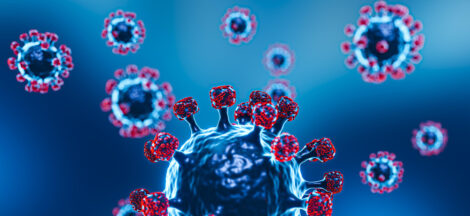Miscarriage refers to the spontaneous loss of a woman’s pregnancy before the 20th week, which can be both physically and emotionally painful. It is one of the most common types of pregnancy loss and often occurs as the fetus doesn’t develop naturally.
It is fairly common for pregnant women to fear a miscarriage, and it’s always better to take precautions before it’s too late. We have brought you some of the common causes of miscarriages. There are certain things that you can control and others that are natural. You need to be aware of things that can lead to miscarriage and avoid such practices.
You must understand these causes and try to reduce your stress about miscarriage. Consider reading till the end to get things cleared about different factors of miscarriage.
5 Common Causes of Miscarriages
Abnormal Chromosomes:
A human body consists of 23 pairs of chromosomes, out of which 22 are common in both males and females. These typical chromosomes are known as autosomes. If the miscarriage happens within the first 12 weeks of pregnancy, there are 50% chances that there is something wrong with the baby’s chromosomes.
The genes that determine your baby’s unique traits such as hair color, facial look, eye color are located in the chromosomes. When these number of chromosomes differ or are damaged, the baby can’t grow naturally, and this leads to miscarriage. Some of the severe problems caused due to abnormalities in the chromosomes include Molar Pregnancy, Blighted Ovum or anembryonic pregnancy, and partial molar pregnancy.
Medical Conditions:
Underlying the medical conditions of the mother can also result in miscarriage. Some of the common medical conditions that cause miscarriage include:
- Thyroid, lupus, and other autoimmune disorders
- Blood clotting issues restricting blood flow to the placenta
- Problems with uterus or cervix, cervical insufficiency, and an abnormally shaped uterus
- Sexually Transmitted Diseases or STDs such as HIV, AIDS, syphilis, and gonorrhea
- Other infections such as cytomegalovirus or rubella
- Long term diseases such as blood pressure and diabetes
Lifestyle:
One of the significant causes of miscarriages is your lifestyle. Some hazardous habits can affect your baby’s health and may even cause miscarriage. These habits include:
Smoking:
Some studies have revealed that there is a high risk of miscarriage even if only the father smokes. You need to be careful before becoming a father that you avoid smoking cigarettes which can cause serious health issues for your baby.
Heavy Drinking:
Both parents should avoid drinking heavily when trying to be pregnant. Heavy drinking can severely affect your baby’s health and even cause miscarriage in some cases.
Illegal Drugs: If you are consuming illicit drugs, even if you are the father, such hazardous habits can restrict your baby from natural growth and cause chances of miscarriage.
Medications:
Yes, certain prescription medications and over-the-counter medications can also cause miscarriage or pregnancy loss. You should avoid these medications when you are pregnant. These medications include:
Methotrexate, meditation for rheumatoid arthritis
Misoprostol, prescription for peptic ulcers and rheumatoid arthritis
Retinoids, used for common skin conditions such as acne and eczema
Non-steroidal anti-inflammatory drugs (NSAIDs) used for pain and inflammation
Such medications are generally preferred when you are having specific symptoms of these problems. You should avoid such drugs and talk to your doctor about the same as it can cause you miscarriages.
Environmental Hazards:
Another common cause of miscarriage is environmental hazards. As you must be aware, our environment consists of different gases and components which promote life.
However, along with this, you are also exposed to certain dangerous things that you should avoid direct contact with. Such hazardous components can even cause miscarriage. These components include:
- Mercury exploded from broken thermometers or fluorescent light bulbs
- Pesticides used in farming to kill insects or rodents
- Arsenic found near waste sites or in healthy water
- Harmful solvents such as paint thinners, degreasers, stain, and varnish removers
- Lead in water pipes and paint in homes built before 1978
Safe Things that don’t Affect your Pregnancy
If you feel your pregnancy is not at a higher risk, certain good things won’t affect your pregnancy. The following items are considered to be safe for pregnancy:
- Emotional shock
- Spicy food
- Air Travel
- Sex
- Working
- Stress or depression
- Sitting or standing for adequate time
Conclusion
You need to take care of certain things that can help you prevent miscarriage. You need to ensure that you are away from any direct contact with hazardous elements of the environment, avoid over-the-counter medications, and adapt to a healthy lifestyle. Abnormal Chromosomes is another major factor of miscarriage.
We hope that this helpful guide will help you learn about different reasons for miscarriage and what things you can avoid reducing the chances of miscarriage. For more information about home remedies and a positive lifestyle, please stay connected with us.





 Benefits and Side Effects of Cupping Therapy
Benefits and Side Effects of Cupping Therapy